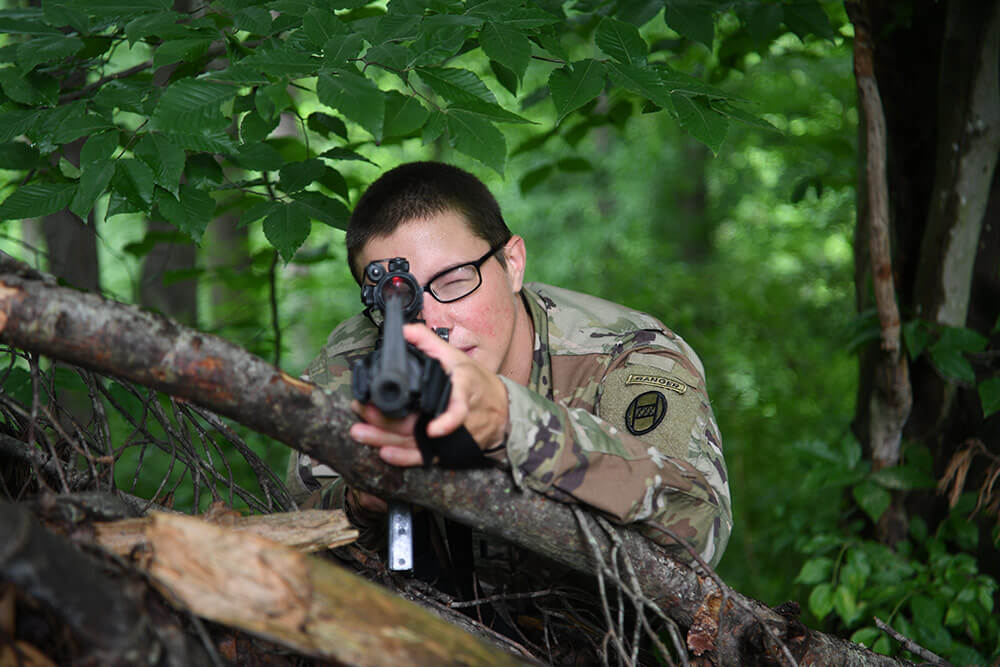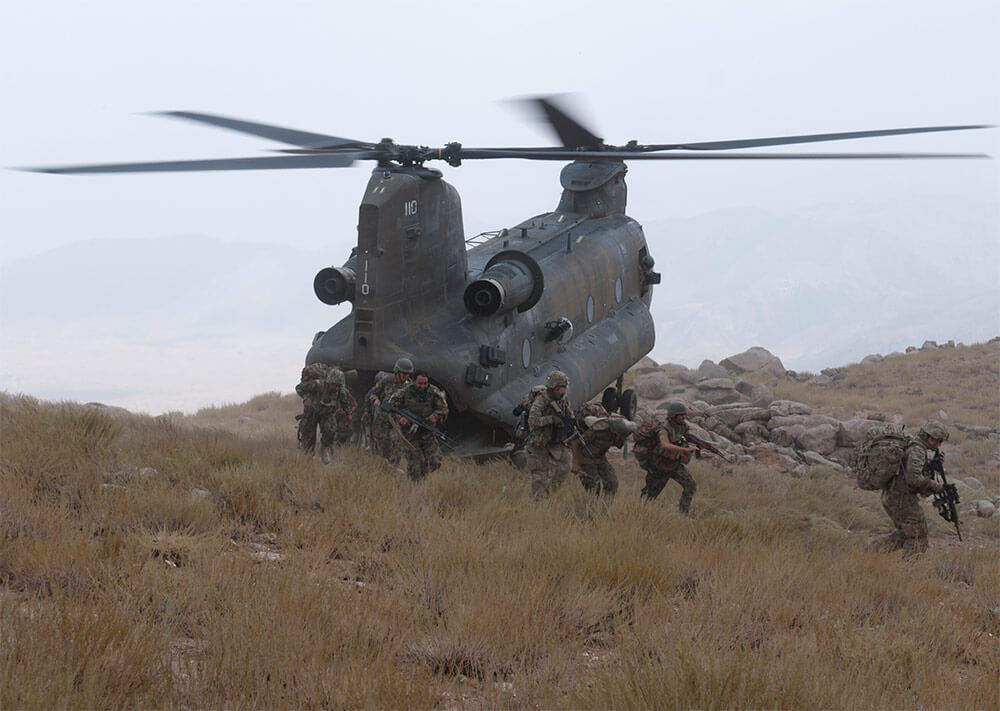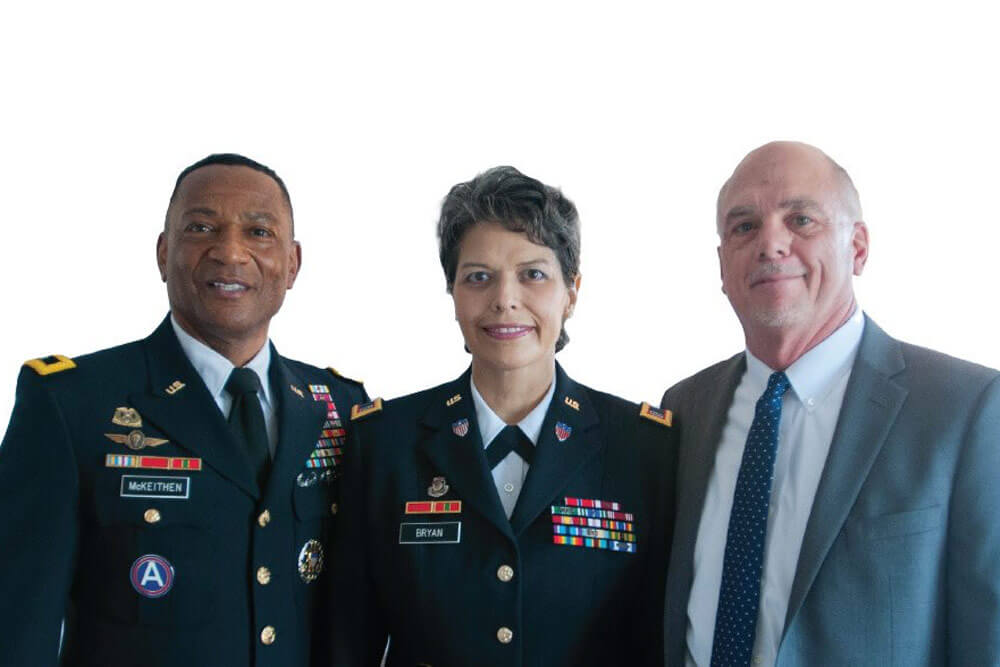They Wear the Green. They Wear the Blue.
Thirty percent of Middleton Idaho’s small police department is made up of Army National Guard Soldiers. Their skills are critically needed as the community experiences growing pains.
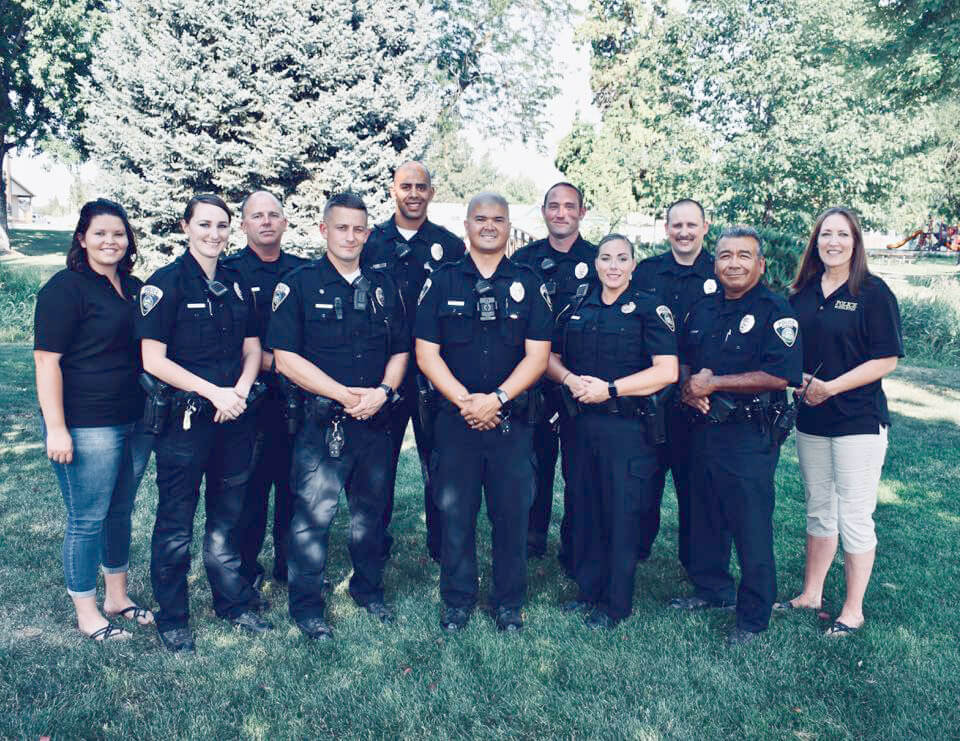
The U.S. Census Bureau estimated that as of July 2017, Middleton’s population was 7,439. That’s a 35 percent increase over the 2010 population and the local police department reports the community is continuing to expand.
“It’s growing pains,” said Middleton Police Department Chief Alan Takeuchi. ”A lot of people are interested in the feel of the city. People feel safe. [It’s] very family-oriented, when it comes to the way that the city is being designed.”
The safeguarding of Middleton is a large responsibility for a department of just nine officers. The officers have a smorgasbord of law enforcement duties. Among the most common calls in Middleton are drug offenses, juvenile crime and traffic violations, the chief said.
“We see a lot of juvenile problems,” he reported. “I think every town has a drug problem, but those two go hand in hand—kids out doing what they’re not supposed to be doing and getting into drugs. We [also] have a lot of traffic issues because more people are coming into a smaller, congested area of town.”
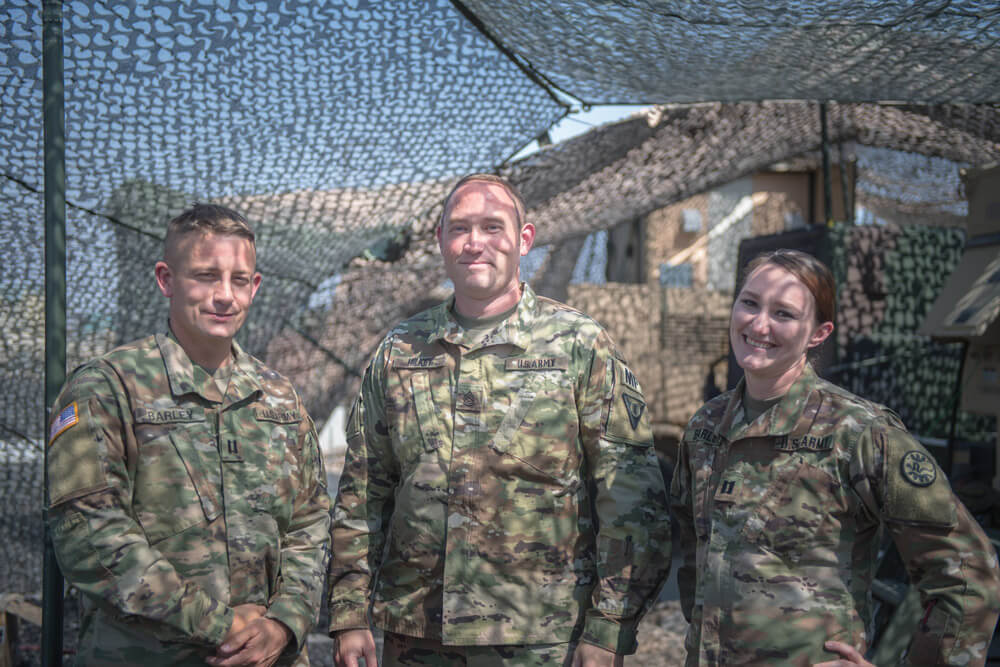
Since the department is small, its officers often have more than one role to fulfill. Having Idaho Army National Guard Soldiers as part of the police team is a force multiplier because of their military experience and ability to function effectively in many roles. Takeuchi said he believes the expertise of CPT Haily Barley, CPT Mike Barley and SFC Nathan Hilkey is invaluable to the department.
“They’re leaps and bounds beyond someone that we would just hire and send to a police academy,” he said.
The Soldier/Officers provided their perspective on their work and explained their attraction to public service.
CPT Haily Barley
“The first opportunity I got, I enlisted,” CPT Haily Barley said. She went on to note that she has wanted to be both a police officer and a Soldier from the time she was a young girl. During her childhood, all the men in her family served in the military in some aspect. She decided then that military service was something she wanted to do too. CPT H. Barley was raised by her grandparents, who she said grew up during WWI and were very “old school.” It was her grandparents who taught her about dedication to service, community and country.
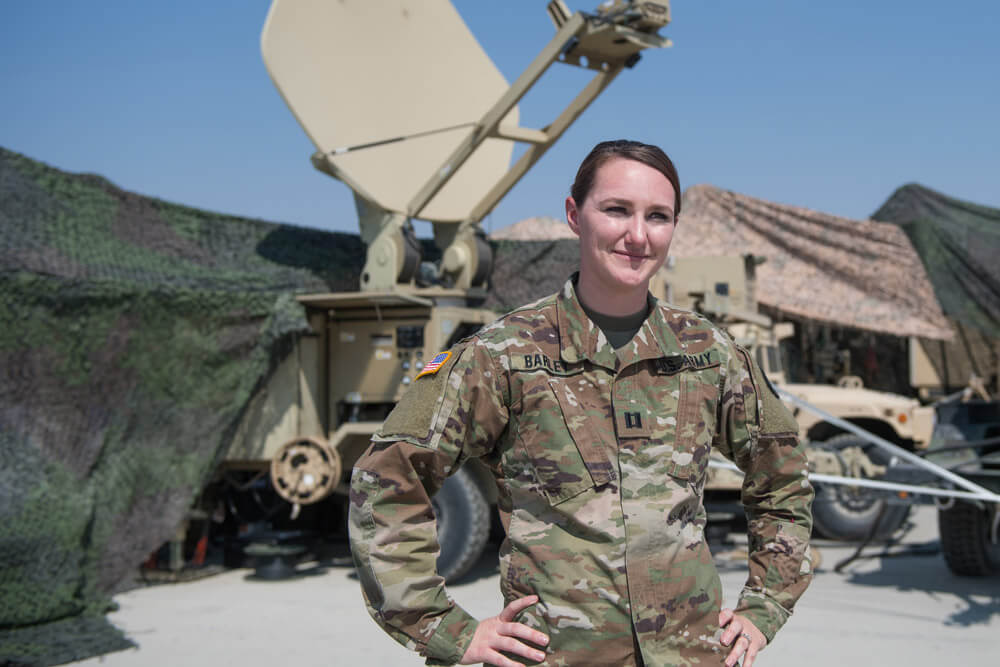
“[After enlisting,] I got accepted to the University of Idaho. From there, I started studying Justice Studies for law enforcement, because that’s what I wanted to do. And I did the military as I was going through school,” CPT H. Barley explained.
She said she enjoys being both a Guard Soldier and a police officer, but there are ups and downs in each position. Currently she is the signal officer for the Idaho Guard’s Cavalry Brigade Combat Team, 116th Brigade Engineer Battalion; however, she said it is hard to advance in her present field and would like to branch out to engineering. She added that she would like to be back working with the Soldiers.
“I want to go engineer,” CPT H. Barley remarked. “I love our engineers, because you’re blowing things up. You’re shooting big guns.”
For the city of Middleton, she works as the school resource officer at four different Middleton public schools and also handles most of the sex abuse cases for the police department. She said she enjoys serving and especially loves working with the students.
“Helping someone getting the bad guy, or getting drugs off the street, making our community better— [that’s a] huge reward,” she said. “Being involved with the kids and making their day better, being someone they can confide in, those are wins. I have a goal—every day make at least three people laugh.”
CPT H. Barley is well aware though that not everything is a laughing matter. She’s been there for her neighbors, including Veterans, when the chips were down. Being a Soldier has helped her relate to Veterans in crisis and that has encouraged them to confide in her.
“There have been a lot of issues with suicidal subjects,” she recalled. “We go out on those calls all the time and a lot of them are Veterans. They don’t trust. You’re a cop and automatically they kind of get a little rigid. There was a guy that held himself at gunpoint for a couple hours, and he would only talk to me and three other guys. They’re Vets too. He sat down for hours and just talked to us and just sobbed. He was experiencing a mental breakdown, but having that camaraderie [helped him].”
CPT Mike Barley
“I actually met my wife at my first drill,” CPT Mike Barley recalled. “She was the cadet cadre and I was just a private. She’s very social, very personable. I’m very logical. She’s kind of the Captain Kirk to my Spock.”
CPT Mike Barley is married to CPT Haily Barley. He is the personnel officer for the 2nd Battalion, 116th Cavalry Regiment (Combined Arms Battalion) and also serves on the Middleton Police Department. He works as the police force’s drug recognition expert, team lead and field training officer.
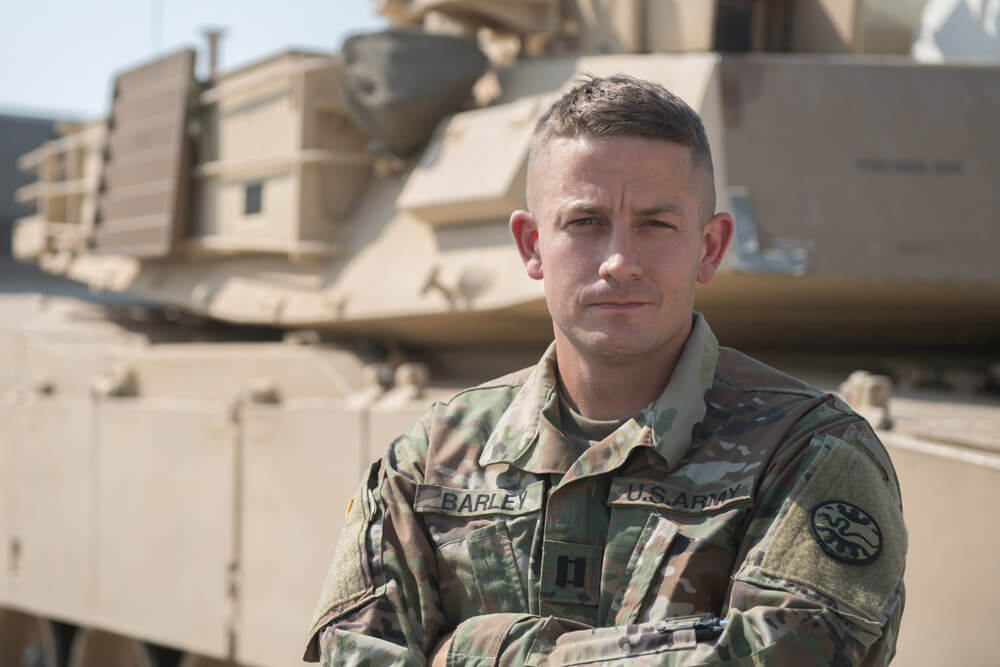
“I initially [joined the National Guard] mainly because they said they’d pay for my college,” recalled CPT M. Barley. “It was as I went through ROTC, that I really became interested in the Guard. Then, I took a law enforcement job one summer while I was going to medical school and I loved it so much that I stayed with it.”
The Barley duo came to Middleton as a package deal. The community hired the couple together. CPT M. Barley was offered the job by Takeuchi, but he was hesitant to accept because his wife, CPT H. Barley, also needed to secure a position.
“My wife, she just happened to be third on the hiring list after me,” he explained. “So, the chief went to the mayor and the mayor went to the city council. They approved to hire her too.”
“It’s been wonderful,” said CPT M. Barley. “I love smaller departments because it gives you the freedom of doing almost anything you want to pursue. For me, I’m still interested in biology, so I became a drug recognition expert, which requires hundreds of hours of training and certification. But they let me do it. I’m also a phlebotomist with the department so I can take blood draws. They never said ‘no’ to me so it’s been great. You don’t get pigeonholed with this department.”
CPT M. Barley said he attributes a large part of his success in the Middleton Police Department to his experience with the Army National Guard—most notably his leadership skills. His work as the team lead for the police force relates quite a bit to his work in the Idaho Army National Guard.
“I help the [police] chief make decisions about personnel and training for the department,” CPT M. Barley said. “I actually line out our training very similarly to how we do it in the Guard.”
SFC Nathan Hilkey
Like fellow Middleton police officer CPT H. Barley, SFC Nathan Hilkey said he has wanted to serve since he was very young—five-years-old to be exact. His favorite toy was a GI Joe military police officer, complete with K9 companion, he recalled.
“It’s what I’ve always wanted to do. My mom’s entire side of the family was cops,” he said.
Today, SFC Hilkey is working to build the Middleton police department’s canine program. One hundred sixty hours of training are required to develop a qualified police dog, he said. SFC Hilkey hopes to partner with his Chocolate Labrador for the role, which would streamline the process since the dog is already owned by an officer and housing is provided.
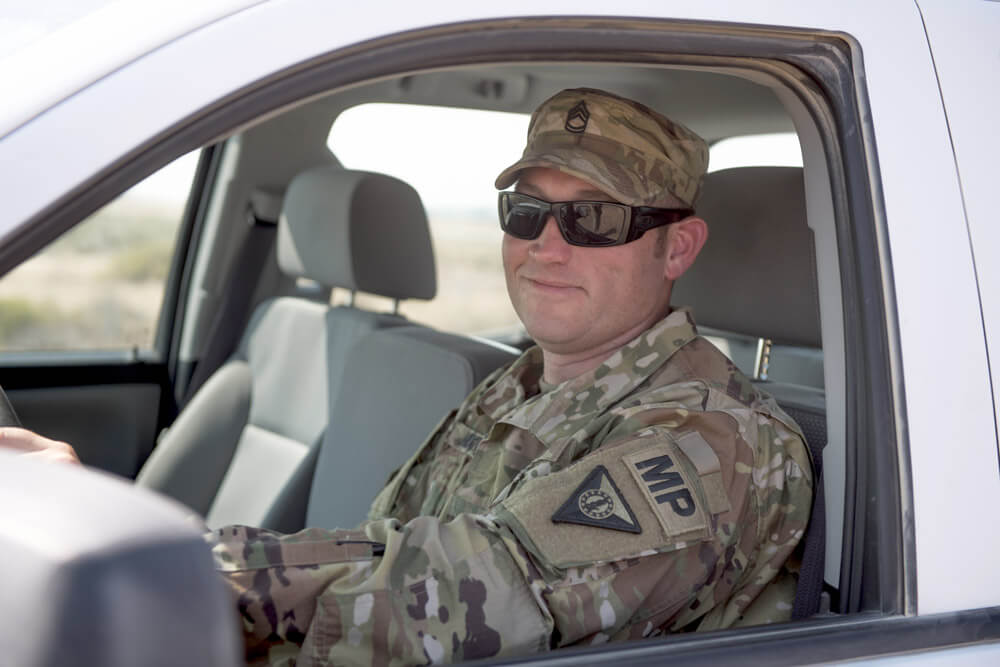
In the Guard, SFC Hilkey filled a wide variety of roles working as a military police officer with the Idaho Army National Guard’s Installation Support Unit. A Guard Soldier for 19 years, SFC Hilkey has been deployed four times and was assigned diverse tasks during each deployment. He said his first deployment was to Kirkuk, Iraq, where he was “bagging and tagging bad guys,” and taking them back to the main base for interrogations. During his second deployment he worked out of Camp Liberty in Iraq performing convoy security. On his third deployment at Camp Eggers in Afghanistan, he was in charge of the gate guard for force protection. Lastly, he was appointed to the personal security detail for celebrities and generals at the New Kabul Compound in Afghanistan, where he also helped train Afghan police officers.
SFC Hilkey retired from the Army National Guard at the end of last year, but says he’ll continue to serve with the Middleton Police Department until, “they tell me to leave.” He remarked that he knows the training, command structure and sense of responsibility he learned in the Army will continue to serve him well in his career as a police officer.
“The rewards [they bring to the police department are] the experience, the confidence and the leadership—hands down,” said Takeuchi. “Those are things that you just can’t teach to a brand new officer. I feel like they bring a lot to the table with those kinds of qualities.”
By Staff Writer Matthew Liptak
Idaho Army National Guard photos by 1LT Robert Barney
